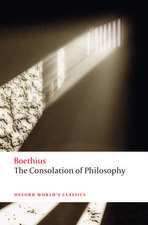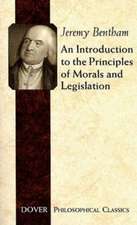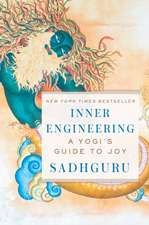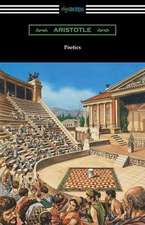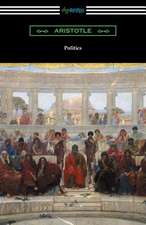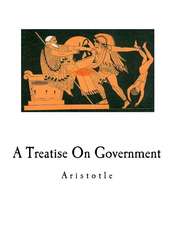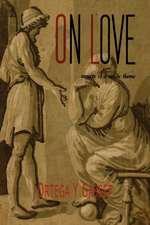Nicomachean Ethics
Autor Aristotle Traducere de C. D. C. Reeveen Limba Engleză Hardback – 25 feb 2014
| Toate formatele și edițiile | Preț | Express |
|---|---|---|
| Paperback (11) | 46.42 lei 22-36 zile | |
| – | 46.42 lei 22-36 zile | |
| CREATESPACE – | 58.30 lei 22-36 zile | |
| Penguin Books – 28 ian 2004 | 59.64 lei 25-31 zile | +22.96 lei 6-12 zile |
| Penguin Books – 29 apr 2020 | 60.52 lei 25-31 zile | +24.45 lei 6-12 zile |
| Hackett Publishing Company – 31 dec 2001 | 133.96 lei 22-36 zile | +24.94 lei 6-12 zile |
| CREATESPACE – | 150.68 lei 22-36 zile | |
| Pearson – 31 dec 1961 | 439.27 lei 22-36 zile | |
| NuVision Publications – 9 aug 2007 | 91.70 lei 38-44 zile | |
| A & D Publishing – 8 feb 2009 | 94.63 lei 43-57 zile | |
| COSIMO CLASSICS – 30 oct 2008 | 105.38 lei 43-57 zile | |
| – | 117.27 lei 43-57 zile | |
| Hardback (2) | 190.98 lei 43-57 zile | |
| Hackett Publishing Company, In – 25 feb 2014 | 382.77 lei 22-36 zile | |
| – | 190.98 lei 43-57 zile |
Preț: 382.77 lei
Preț vechi: 430.07 lei
-11% Nou
73.27€ • 79.61$ • 61.58£
Carte disponibilă
Livrare economică 31 martie-14 aprilie
Specificații
ISBN-10: 1624661181
Pagini: 504
Dimensiuni: 6 x 228 x 152 mm
Greutate: 0.82 kg
Editura: Hackett Publishing Company, In
Colecția Hackett Publishing Company, Inc.
Recenzii
"C D C Reeve's masterful new translation of Aristotle's Nicomachean Ethics will become a classic: it is clear and readable; its interpretive implications are far-reaching; it is philosophically illuminating. Reeve's scholarly noteswith detailed textual cross-references to the rest of Aristotle's worksintegrate the ethics with the metaphysics, the politics, and the philosophy of mind. The book is an invaluable resource, useful to students and scholars alike." -- Amelie Rorty, Tufts University & Harvard Medical School
"An excellent new translation and commentary. It will serve newcomers as an informative, accessible introduction to the Nicomachean Ethics and to many issues in Aristotles philosophy, but also has much to offer advanced scholars. The commentary is noteworthy for its frequent citations of relevant passages from other works in Aristotles corpus, which often shed new light on the texts. Reeves translation is meticulous: it hits the virtuous meanaccurate and technical, yet readablebetween translations vicious extremes of faithlessness and indigestibility." -- Jessica Moss, New York University
Notă biografică
Cuprins
Chronology
Introduction
Further Reading
A Note on the Text
Synopsis
The Nicomachean Ethics
Book I: The Object of Life
Book II: Moral Goodness
Book III: Moral Responsibility: Two Virtues
Book IV: Other Moral Virtues
Book V: Justice
Book VI: Intellectual Virtues
Book VII: Continence and Incontinence: THe Nature of Pleasure
Book VIII: The Kinds of Friendship
Book IX: The Grounds of Friendship
Book X: Pleasure and the Life of Happiness
Appendix 1: Table of Virtues and Vices
Appendix 2: Pythagoreanism
Appendix 3: The Sophists and Socrates
Appendix 4: Plato's Theory of Forms
Appendix 5: The Catagories
Appendix 6: Substance and Change
Appendix 7: Nature and Theology
Appendix 8: The Practical Syllogism
Appendix 9: Pleasure and Process
Appendix 10: Liturgies
Appendix 11: Aristotle in the Middle Ages
Glossary of Greek Words
Index of Names
Subject Index
Descriere
Library of Liberal Arts title.




